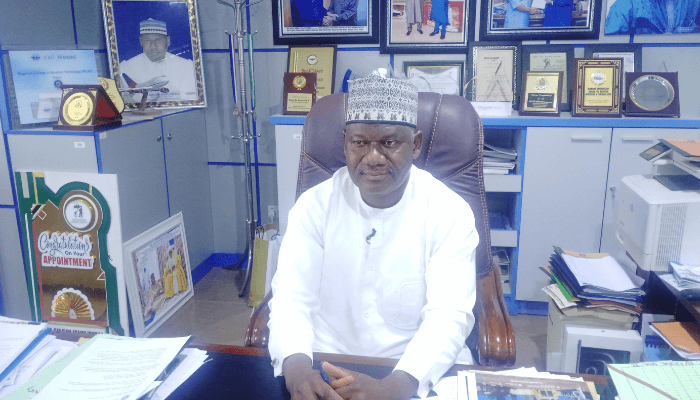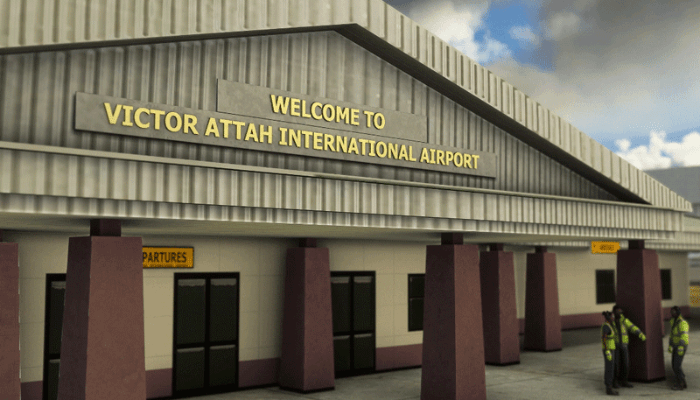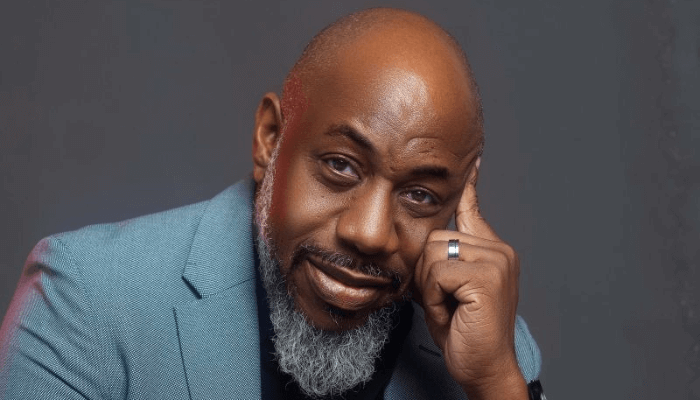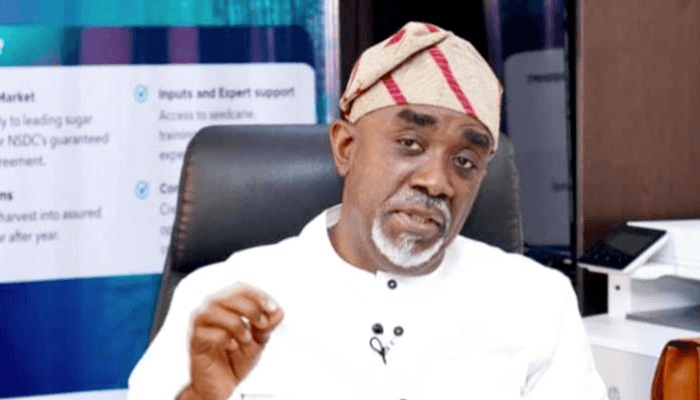The Nigerian College of Aviation Technology (NCAT), Zaria, is a premier institution dedicated to producing highly skilled aviation professionals. As the largest Approved Training Organisation (ATO) in Aviation in Africa, NCAT has been instrumental in shaping the careers of numerous pilots, aircraft maintenance engineers, air traffic controllers, and other aviation experts. With its Platinum Membership status from the International Civil Aviation Organisation (ICAO), NCAT has demonstrated its commitment to excellence in aviation training. In this insightful interview, Rector Danjuma Adamu Ismaila shares his vision for the college, discusses the prospects and challenges facing NCAT, and highlights the institution’s partnerships and collaborations with civil aviation authorities in Africa. From expanding its course offerings to enhancing staff retention and leveraging partnerships with international organisations, Ismaila provides valuable insights into the future of aviation training in Nigeria and beyond.
What are the prospects that you are seeing for NCAT and the challenges you’re currently faced with at the college?
Let me welcome you once again to the Nigerian College of Aviation Technology, Zaria, the foremost aviation training centre established as far back as 1964 with the mandate of providing training, manpower development for pilots, aircraft maintenance engineers, air traffic controllers, and other professionals in the aviation industry.
The college has six schools covering various courses that meet the needs of the aviation industry. Actually, we are very proud to say that almost more than 70 percent of Nigerian aviation professionals were trained here, either the initial or their subsequent training were done here. In the aviation industry, training and retraining is part of their operations. Most of the professionals need to be retrained to be able to address issues in the industries or meet international standards. So we have been training aviation professionals, whether engineers, operators, or others. So when I came to the college, I discovered that the college has a lot of potential and that it can serve the needs of all aviation industries training needs.
But unfortunately, we discovered that there are some other gaps; of is that we have not been meeting the training of some of the industries. Some of them have to go abroad. So as such, I had to look for how we can bring in new courses to meet the training needs of every aviation professional. If we have done that, we will serve the country and a lot of foreign agents go outside for training. We also have the opportunity to earn more foreign agents if we can attract foreign trainees.
Right now, we have been getting some foreign trainees into our college, even though it has been on like that but because we have not done the needful, we have not gotten enough trainees as we would like to. But now, when I came here, I said we need to take that as a challenge. We are proud to say that we are the largest Approved Training Organisation (ATO) in Aviation in the whole of Africa, in terms of the number of courses we run. And that’s why ICAO has classified us as Platinum Membership.
Before, we were the Center of Excellence in Africa, but now we are Platinum Excellence Platinum Membership. So we have to do more because of the number of courses we run. We need to increase the number of courses for us to meet the training of aviation professionals. The college has a lot of facilities and infrastructure. Unfortunately, the infrastructures are up. It’s limiting our ability to increase our capacity, that’s in terms of hostels, classrooms, and offices.
But in terms of facility, we are very proud to say that we have met the international standard required for us to run such courses. And that’s why every year, the Nigeria Civil Aviation Authority (NCAA) has to audit our programs. In that audit, it will check whether we have met the minimum requirements to run such programs in terms of manpower, instructors and facilities. And we have been doing that every year. So any time they give us corrections, we affect the corrections. This happens before they renew our license to maintain the ATO standard required. So we have achieved a lot in terms of that.
But I discovered that there are some facilities put in place, but they have not started operating them. Like the full flight simulator 737, which is the only one in Nigeria has the potential to make at least $500 every hour. With $500 every hour, you will understand how much we can generate in a year. It’s very big money. So the college needs to put this in use. So I now said, look, we can’t tie down our government’s resources like that. So I set up a task force. The task force is now working day and night to see that the machines are functioning.
Not that it’s not functioning, actually. We need to do certification. Certification is to be done by the NCAA. Unfortunately, when they brought it new, because it is the first time Nigeria acquired this, it became a problem. Who will certify? The NCAA doesn’t have the competency to certify us to do the program. So we have to train some NCAA staff together with our own approach so that they can acquire the competency to do our certification. And we have achieved that. But as you keep machines for quite a long time, before you can restart it now, it becomes another issue. So we are working with the manufacturer, they are trying to restart the machines, make them functional according to the specifications of the original manufacturers.
So we have a lot of potential to even not only sustain ourselves, but to bring money to the Nigerian government. Once we can put this into place, and then we can have additional revenue from the operations. Many prospective investors are willing to partner with us in terms of these simulators.
They are ready to assist us. We just put some little effort, and then we achieve a lot.
I want to take you up on the angle of the facilities that are not certificated by the NCAA. You just mentioned the simulator for 737NG. Are there others yet to be certified?
There is no other facility yet to be certified by the NCAA. That’s the only equipment that we can say is yet to be certified by the NCAA. Otherwise, all other equipment that we have is operating and is certified by the NCAA. The only things are some challenges of maintaining some of these facilities. These facilities are very expensive, and you spend a lot of money upgrading the system or, what I call, updating the system by the manufacturers. Most of the equipment is now computer-based. So you need to continue upgrading them based on the specification of it. A lot of money has been spent on them. We can’t even run a program without being certified by the NCAA.
You had earlier mentioned in an interview that some of your staff have been poached to other organisations and that’s in a bid to address this, you are introducing a bond. So beyond the bond, what else are you doing to ensure that staff are retained here?
The bond issue for now is a long-term strategy. For now, we have to get younger ones. We have to employ the younger ones. And then we tie them to a bond. We give them training. Then after the training, we now bond them not to go to any other organisation. The other aspect that we are touching on is the issue of working with the Salaries and Wages Commission, where we can enhance the pay package of our pilot instructors, instructors of air traffic controllers, and other engineers. Otherwise, as you said, once we are not giving them adequate remuneration, they will look elsewhere where they are going to be. Sometimes some pilots are earning N13 million monthly. Here, we don’t give them even up to N2 million. So you see, there is a gap, and as such, this motivates them to run away from that place. So, the only way to make them stay is if we bond them and that we issue them a license. We’re also thinking of working with the NCAA to say that their license is only tied down to the NCAT operations. So this is another option, where you say the license should only be tied to the NCAT operation.
I want you to speak on some of your MOUs and partnership with some civil aviation authorities in Africa. What are those partnerships? Have there been any partnerships, especially with Egypt about Sudan?
Actually, when I came in here, I noticed that there was negligence in terms of even publicity. So if within the area community, people are not even aware of what we do, other institutions will also not know. So we are now trying to reposition ourselves to be aware of what we do. So, we thank God we are able to get attention from South Sudan. We met them in one of our programs we attended. Some of our staff attended the program. So when they were able to meet us and to meet one of our staff, they exchanged cards and they informed them about the college. They expressed their interest to come. So we invited them. They came and saw what we have. They then asked if there is any way we can partner with them, organise a program or train their staff. They want to launch their country into global aviation. So what they do is that they know they have to train their staff to make them professional, competent enough to provide the services within the country. And so they signed an MOU with us just last month for us to train most of their professionals, various kinds of professionals in the sector.
We are going to run some programs here in Zaria and some of them are going to be done in Juba, the capital of South Sudan. So the Director General, Chief Executive of the Civil Aviation of South Sudan visited the country. And according to him, it was the president of the country that approved for him to visit the country. And the head of training of the South Sudan Civil Aviation came here. They have assessed our programs and they were really impressed with it. They said they are going to send some participants to us here. So I think it’s going to bring a lot of revenue to the Nigerian government and the college as well. We have also already signed an MOU with Egypt. They also have a training outfit. They are providing Air Traffic Service (ATS). And so they train some of their engineers here. In fact, this is the second time they are coming here.
So they are impressed with the standard of training we provided them here. Rather than going abroad or going to other countries, they feel that Nigeria is giving them very good options and value for their money. And so that’s why they are coming here.
Well, anywhere you go in the world, our programs have met the international standards. So anybody can patronise our programmes all over the world. Our service is in high demand globally, whether in Nigeria or Africa, people will come and rush to do the programs here in Nigeria.










